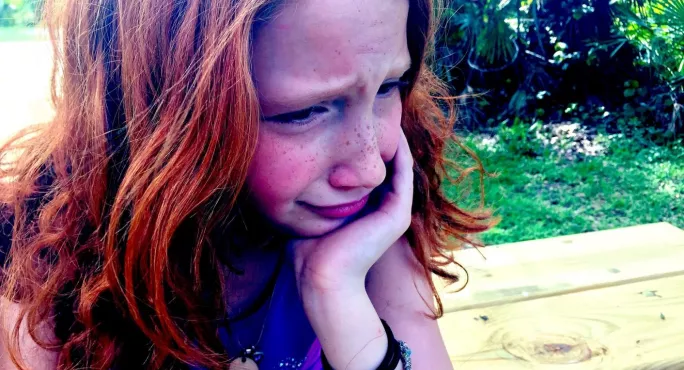- Home
- Parents told ‘you can’t opt out of national tests’
Parents told ‘you can’t opt out of national tests’

The Scottish government has come under fire for writing a “draconian” letter to directors of education, telling them families do not have the right to opt children out of new national tests.
The email from Graeme Logan, a deputy director at the Scottish government, earlier this month stated that the government had been advised by Solar (the Society of Local Authority Lawyers and Administrators in Scotland) that “parents don’t have the option to opt out of the assessments”. It added that “all children and young people will participate in SNSA [Scottish National Standardised Assessments]”.
The email said that only in “exceptional circumstances” and with the school’s agreement could a child be withdrawn from the literacy and numeracy tests. The tests were introduced in 2017-18 at P1 - the first year of primary school in Scotland - and at P4, P7 and S3.
Mr Logan added that “in exceptional circumstances, I understand that if a parent has genuine concerns, they can talk it over with the school and only by agreement would a child not participate”.
The email is controversial because parents say it flies in the face of the original advice from the Scottish government stating that they would be free to withdraw their children. Now, that right is being seen as increasingly important given that the P1 literacy test, in particular, has become mired in controversy.
Teachers say the test is too difficult and time-consuming, with young children lacking the computing skills to undertake the online assessments and sometimes ending up in tears.
One depute head even wrote to education secretary John Swinney to say a child in her school had “soiled themselves due to the extreme distress” caused by the test.
‘Setting parents against schools’
Parents’ organisation Connect said the letter from Mr Logan represented “a step-change in the Scottish government’s stated approach”, and “seriously undermined” the collaborative tone in the government’s parental involvement strategy. The body’s executive director, Eileen Prior, added that the email could “unfortunately set parents against schools and local authorities”.
Ms Prior said: “The collaborative tone of the ‘Learning Together’ action plan for parental involvement - published only yesterday by the Scottish government - is seriously undermined by this draconian letter.
“Are P1 [national standardised assessments] compulsory in law? Do parents have rights in schools? I’m afraid we are getting into the realms of ‘whose child is this?’, which is in direct conflict with the spirit of partnership between parents and schools that so many parents and professionals work so hard towards.”
Upstart Scotland, a group of educationalists campaigning for the tests to be scrapped in P1, also accused the government of sending out mixed messages. It had been told in June by David Leng - the government lead for the SNSAs - that parents could opt their children out, said Sue Palmer, a literacy specialist, former teacher and the chair of Upstart Scotland.
She said: “We were assured in a meeting on 5 June with David Leng that parents were entitled to withdraw their children. He gave us a categorical ‘yes’.
“This testing policy was rushed through at incredible speed and has been very ill-thought-through. Something of such significance should have been put out to consultation and it was not.”
Ms Palmer insisted the new government guidance would not interfere with the Upstart Scotland campaign, giving parents pre-written postcards to inform schools that pupils would not be taking the national assessments.
Ms Palmer said: “The ‘rules’ they quote say that parents are entitled to opt their children out in ‘exceptional circumstances’. Upstart would argue that this is an exceptional circumstance, since there is no way that doing two 40-minute, tablet-based tests could be considered part of the ongoing work of a P1 class following the early level of Curriculum for Excellence.
“There is also a great deal of evidence, which we have repeatedly presented to the government, that national standardised assessment at this age is likely to have long-term damaging effects on the P1 curriculum in terms of teaching to the tests - and thus on children.”
Withdrawal ‘at discretion of the school’
A Scottish government spokesman responded by stating that no statutory right exists for parents to withdraw their child from any aspect of schooling other than some parts of religious and sexual education.
He added: “However, as the Scottish government has always maintained, if a parent does not wish their child to take part in an aspect of teaching and learning, they should discuss this with the school, who have the discretion available to them to decide whether the child takes part or not. This is the same position as has existed for decades and was the case with the previous assessments, which the new SNSA has replaced.
“And it applies equally to all parts of learning so if, for example, a parent did not wish their child to sit a spelling test in year three of secondary school, there would be no ‘legal right’ to take their child out of the test. But, of course, it would be for the school to decide the correct course of action for the child’s needs in discussion with the parent. The same applies with the new standardised assessments.”
Keep reading for just £1 per month
You've reached your limit of free articles this month. Subscribe for £1 per month for three months and get:
- Unlimited access to all Tes magazine content
- Exclusive subscriber-only stories
- Award-winning email newsletters



